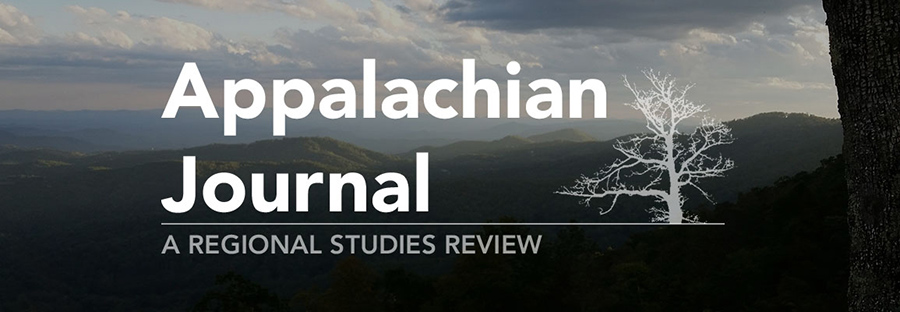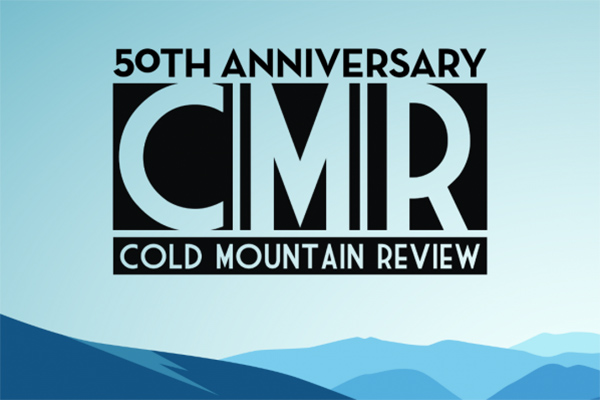BOONE, N.C. — Appalachian State University’s Appalachian Journal: A Regional Studies Review marks its 50th anniversary this academic year, with the journal’s semicentennial volume set to publish later this spring.
Published by the Center for Appalachian Studies, the interdisciplinary, peer-reviewed journal features field research, interviews and other scholarly studies of topics such as history, politics, economics, culture, folklore, literature, music and ecology, as well as poetry and reviews of books, films and recordings with a focus on the Appalachian Mountains region.
It began in 1972 — its creation instigated by Cratis D. Williams, a pioneer in the field of Appalachian studies who served as dean of the eponymous Williams School of Graduate Studies at App State. According to its original mission statement, the journal is “dedicated to a broad spectrum approach to all of Appalachia (both past and present), from New York to Alabama.”
“There are publications on regional scholarship, on regional activism — especially regarding environment and health — or on regional writers and artists, but not on all three. Appalachian Journal covers all three,” explained Dr. Sandra Ballard, a professor in the Center for Appalachian Studies and Department of English who has served as the journal’s editor since 2000.
An App State alumna, Ballard is the author of essays and reviews in American literature, with a special interest in Appalachian authors. She describes Appalachian studies as “an innovative, interdisciplinary approach to regional studies that combines scholarship, activism and the arts.”
Entire issues of Appalachian Journal have been devoted to Appalachian music, Black Mountain College and transnational perspectives on Appalachia, advancing the publication’s local, regional and global engagement and contributing attention to diversity and resilience in Appalachia.
As the home of the nation's first graduate program in Appalachian studies, the W.L. Eury Appalachian Collection and the Appalachian Journal, App State is on the radar of mountain scholars across the world, according to Ballard.
“The excellent reputation of App State’s Appalachian studies program attracts scholars and writers to Boone, to meet with our graduate students who have often been studying their work,” Ballard said. “Appalachian Journal benefits from those connections, as the visiting scholars and writers may agree to sit down for an interview or work on unpublished research for an article.”
Appalachian Journal will host a celebration in honor of its 50-year milestone during the 46th Annual Appalachian Studies Association Conference, to be held March 16–19 at Ohio University in Athens, Ohio.

The 2022–23 academic year marks the 50th anniversary of the Appalachian Journal: A Regional Studies Review. The interdisciplinary, peer-reviewed journal is published by App State’s Center for Appalachian Studies and features scholarly works, reviews and poetry that highlight the people and places of the Appalachian Mountains region. Appalachian Journal image
From the first pages to Volume 50
With founding editor Jerry Wayne “J. W.” Williamson, Appalachian Journal became the leading publication for the then emerging field of Appalachian studies, with scholarly articles and reviews appearing alongside poetry and shorter, entertaining pieces.
Williamson also established an advisory board of App State faculty and an editorial board of regional scholars and writers, and within a year of its establishment the journal had 300 subscribers. Growing support allowed the publication to expand into a quarterly in 1974.
“Jerry Williamson published interviews with Appalachian scholars, politicians, filmmakers, activists, writers and other artists — he called them ‘the movers and shakers’ in the region,” said Ballard, who continues some of the traditions that Williamson put in place.
These traditions include popular features such as “Signs of the Times,” which gathers and presents current news media reports on Appalachian people and places and selected stories from around the country and the world, Ballard shared.
In addition to interviews, articles and reviews, Appalachian Journal features roundtable discussions of new books, films and research. Groups of teachers, historians, filmmakers and others have gathered to discuss the film “Cold Mountain” and documentaries that include “Stranger With a Camera” and “American Hollow.” Other roundtables have included discussions of the book “Transforming Places: Lessons from Appalachia,” by Stephen L. Fisher and Barbara Ellen Smith, and topics such as Appalachian identity, guerrilla fighters and war crimes in Civil War Appalachia, and Appalachians affected by the opioid epidemic.
Appalachian Journal is available in both print and digital formats and can be purchased from the University Bookstore, the journal’s office in App State’s Belk Library and Information Commons or online by visiting appjournal.appstate.edu.
What do you think?
Share your feedback on this story.
About the Center for Appalachian Studies
The Center for Appalachian Studies promotes public programs, community collaboration, civic engagement and scholarship on the Appalachian region. The center is committed to building healthy communities and deepening knowledge of Appalachia’s past, present and future through community-based research and engagement. Learn more at https://appcenter.appstate.edu.
About the College of Arts and Sciences
The College of Arts and Sciences (CAS) at Appalachian State University is home to 17 academic departments, two centers and one residential college. These units span the humanities and the social, mathematical and natural sciences. CAS aims to develop a distinctive identity built upon our university's strengths, traditions and locations. The college’s values lie not only in service to the university and local community, but through inspiring, training, educating and sustaining the development of its students as global citizens. More than 6,800 student majors are enrolled in the college. As the college is also largely responsible for implementing App State’s general education curriculum, it is heavily involved in the education of all students at the university, including those pursuing majors in other colleges. Learn more at https://cas.appstate.edu.
About Appalachian State University
As a premier public institution, Appalachian State University prepares students to lead purposeful lives. App State is one of 17 campuses in the University of North Carolina System, with a national reputation for innovative teaching and opening access to a high-quality, cost-effective education. The university enrolls more than 21,000 students, has a low student-to-faculty ratio and offers more than 150 undergraduate and 80 graduate majors at its Boone and Hickory campuses and through App State Online. Learn more at https://www.appstate.edu.















